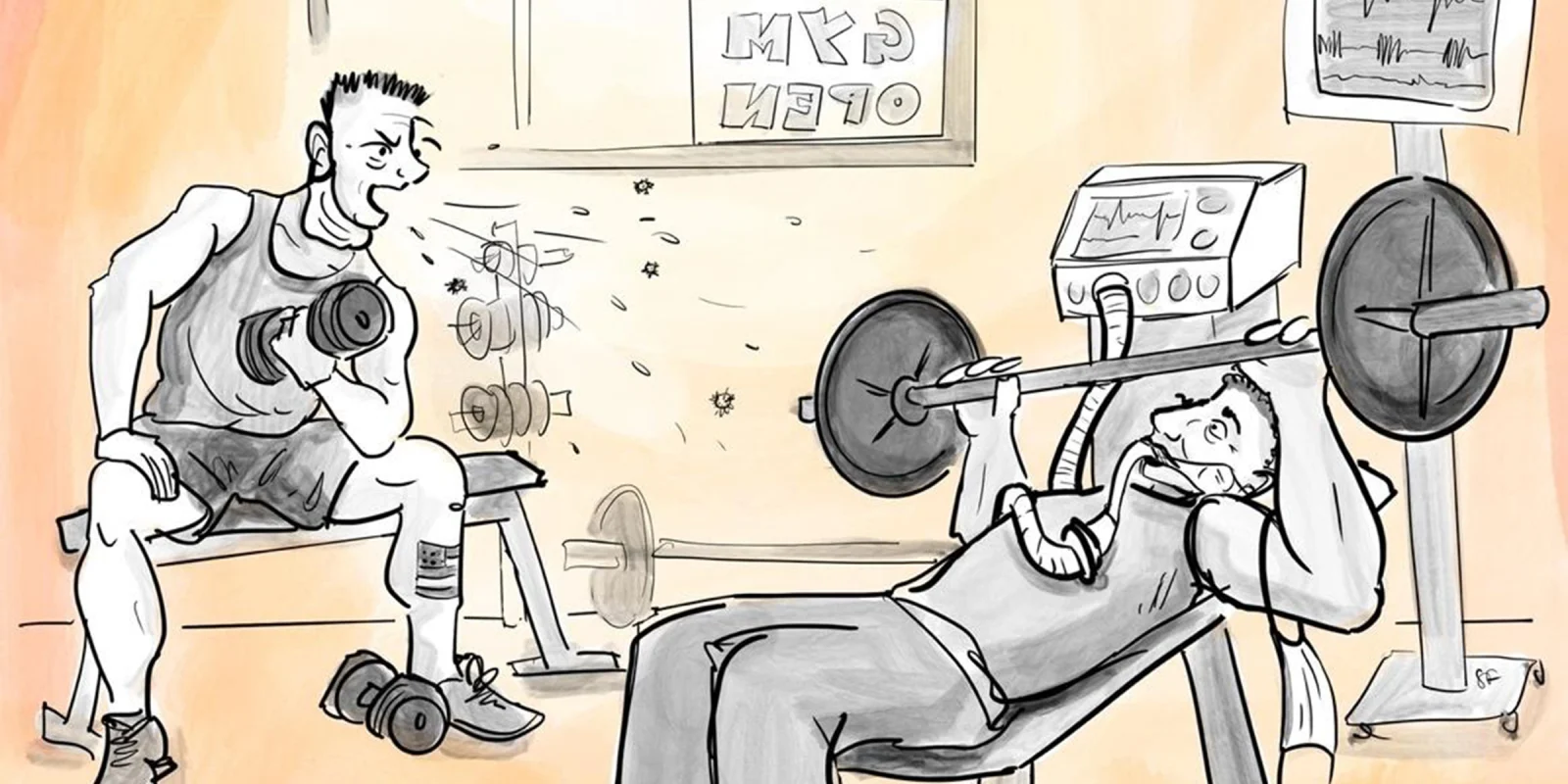I blink and see you silenced by a tube running through your vocal cords. Your thin, dry lips cracking and bleeding — paralyzed, but gagging without movement or sound.
Are these disturbing images really arising in my thoughts today? Now, after recently retiring from 38 years of wearing a white coat of caring?
It started at the gym, where I encountered two older men jabbering loudly, spraying thousands of unseen droplets through their lips all over each other and onto the workout equipment. Their masks were dangling just for show. They bellowed for about 10 minutes, exercising little else but their disregard for the safety of others. Should I say something? I thought. Probably not, since I’m leaving anyway. The likelihood that their response will be apologetic and respectful is almost zero. Yet I did.
“What did you say? We can’t hear you,” one of them said.
Pulling down my own mask, at least 6 feet away from them, I repeated, “It would be much safer for you two to talk outside without masks than inside.”
“We don’t need a sermon about masks,” the talker with the thin lips sarcastically replied.
I tried another tactic. “They will close this place down, if they see people aren’t wearing masks.”
“Tell you what, you can have the last word.”
I walked out at that point, knowing he had the last word. I wasn’t going to give him the satisfaction of a response.
All riled up, I started to think about why I had opened my big mouth and engaged. Most of my life, people have viewed me as unfiltered. Before I retired, I was considered either “disruptive,” if my opinion conflicted with a department head, or “the conscience of the division,” if it reinforced something they agreed with but didn’t want to risk their own necks over. What usually comes out of my mouth is what I think and feel.
I was leaving the gym anyway, so what was my mouth doing other than picking a fight? It’s one thing to go into battle to protect academic integrity, my patients, or even, in some cases, to protect residents-in-training from being manipulated or bullied. It’s quite another to observe the bully in me.
Deeper than that, did I really want the man in the gym silenced by a ventilator? I don’t even know him. A voice inside me tells me he is probably self-centered and selfish, and was probably a bully at work before he retired and left his wife. Or maybe he keeps her around, making her cook for him and do his laundry. And she stays for some reason, reinforcing his arrogance. On the other hand, is it possible that he is a loving husband, father, and grandfather? Is he a good man simply reacting like a cornered animal, trying to assert an inkling of control?
He’s obviously a rule breaker, but so am I. My mouth is not innocent and righteous. My words do not carry any moral authority. My thoughts are probably as egocentric as his, yet I believed in that moment that I was standing up for the innocent victims in this world, and standing up to the bullies.
The second person at the gym didn’t say a word. It was just the one, the one who I pictured on the ventilator as I walked home from the gym. The one who I pictured with a tube down his throat with plenty of time to think about masks or no masks and the people he might inadvertently be infecting or killing with his selfishness.
Where is the compassion and even empathy that I tried to cultivate throughout my life and career?
Is that really what I wish for him, the one who I allowed to have the last word? Of course not. I want him to be respectful, apologetic, and friendly. I want to be that way toward him — the way I have tried to be with my patients. I want to feel like we are all in this together.
Maybe I won’t return to the gym tomorrow because he might be there. Or maybe, if I wear a different mask and T-shirt, he won’t even recognize me. Me and my big mouth.
I’m angry and sad and feel a lump in the back of my throat. More than feeling righteous, I think I feel shame. Have I discovered something about myself and others? Is the other side of shame, blame? That might explain the feelings I had. After 38 years of caring as a physician, I’m finding my way back — back to compassion, back to empathy.
Have difficult encounters challenged your empathy as a clinician? Share your experiences in the comment section.
Gary Fudem, MD, is a retired plastic surgeon and burn surgeon. He spends his time writing both creatively and academically, reading, fly fishing, and dreaming about fly fishing.
Illustration by Stephanie Francalancia, an artist and premedical student presently seeking a masters degree in Narrative Medicine.







